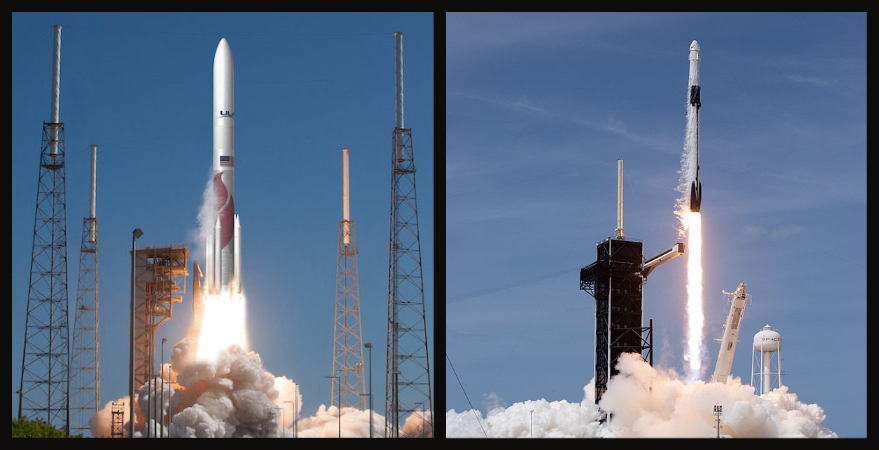WASHINGTON — The Department of the Air Force announced Aug. 7 that United Launch Alliance and SpaceX have been selected to receive five-year contracts to launch national security satellites for the U.S. military and intelligence agencies.
United Launch Alliance received a $337 million contract and SpaceX received a $316 million contract for launches planned between between fiscal year 2022 and fiscal year 2027.
The companies beat Blue Origin and Northrop Grumman in the four-way competition known as the National Security Space Launch Phase 2 Launch Service Procurement. SpaceX and ULA will collectively will fly as many as 34 missions for the Department of Defense and the National Reconnaissance Office under the firm-fixed-price, indefinite-delivery contracts.
“Maintaining a competitive launch market, servicing both government and commercial customers, is how we encourage continued innovation on assured access to space,” Will Roper, assistant secretary of the Air Force for acquisition, technology and logistics, told reporters.
Roper said the Phase 2 awards mark a pivotal point in the transition of the national security launch program to take advantage of commercial innovation and private investments in launch vehicles.
“Today’s awards mark a new epoch of space launch that will finally transition the Department of Defense off Russian RD-180 engines,” he said.
The shift to new launch vehicles also is compelled by a legislative mandate to end the Pentagon’s reliance on United Launch Alliance’s Atlas 5 rocket which has the Russian RD-180 as its main engine. By law, DoD will not be allowed to buy Atlas 5 launches after Dec. 31, 2022.
In Phase 2 ULA will get 60 percent of the missions, and SpaceX will get 40 percent. The Air Force will assign specific rockets on a yearly basis depending on the required missions.
The Air Force has insisted that it is not committing to buying a preset number of launches. The estimate of 34 missions for the covered five-year period could change as priorities and budgets fluctuate from year to year
The high-stakes Phase 2 competition officially started in May 2019 when the U.S. Air Force released the final solicitation for bids. Blue Origin, Northrop Grumman, SpaceX and United Launch Alliance all submitted bids in August 2019. ULA and SpaceX are incumbent launch providers, whereas Blue Origin and Northrop Grumman are new entrants.
ULA is developing a new vehicle for Phase 2, the Vulcan Centaur, a two-stage heavy-lift launch vehicle with the main stage powered by Blue Origin’s BE-4 engine.
SpaceX offered the Falcon 9 and Falcon Heavy, the only certified vehicles that competed in Phase 2.
